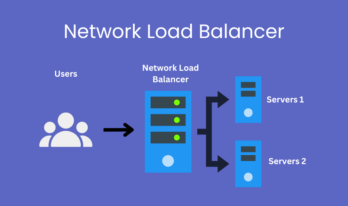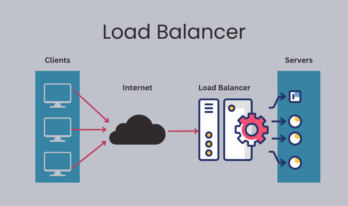Enterprise resource planning has already established a good place in the business markets in order to manage the various aspects of a particular business whether it may be the marketing, finance, or operations.
But responding to the coming events was still an issue for legacy systems as they were only set to perform a certain task not to improvise the ways of doing so.
Here comes the need for Machine learning which allows the software to become more efficient by feeding them the data on which they will develop predictive analysis and become more accurate in estimating future events.
With it, the work time which used to be weeks will now be a few minutes only. AI-backed ERP is as of now performing in a better way for the companies but is it enough? The answer is the digital world around us, is changing rapidly with the blink of an eye.
Which means there is still a need for evolution. That’s where the need for machine learning arises.
Machine learning is a study of algorithms and programs that machines use to perform a specific task without using explicit instructions.
So how exactly does Machine Learning benefit ERP:
There is no hiding of the fact that ERP needs to be updated occasionally. It has to be so as to avert the hazards and keep performing.
But wouldn’t it be great if techies were able to know in advance the potential threats that could hamper the working and workflow.
Various other data are analyzed for this particular function. Data is collected from IIoT sensors, control system data, and plant data. Machine learning processes this data and thus helps in making corrective analysis.
ERP has already proved that it is good enough in giving an organization an estimation of predictions that might turn true in nearby future.
Let’s take an example of inventory. Based on the previously available data ERP can alarm us about as to when the inventories can dry up.
Though ERP here predicts well with Machine learning it will be able to do so with much more accuracy. Machine learning uses some models to give accuracy.
These are properly tested with cross-validations which then help in reducing the leakages ultimately resulting inaccuracy.
ERP with machine learning can help organizations in improving their products as well as optimize their efficiency.
ERP along with machine learning organizations have the tendency to reach the root problems of productions.
In it, the machine learning algorithms deviate the odd data and test the correlations with other data available in order to reduce the factors that could hamper the quality.
This may include data from quality departments and product lifecycle data.
ERP backed with machine learning can place an organization a step ahead of its competitors by providing them the detailed status of their old data by giving them insights about it.
If a company is exploring opportunities in a particular department then such things can be handled well with the help of the machine learning backed ERP as they will be provided with detailed information on their previous data.
It also helps them being a step ahead and alarming them about the opportunities that they can explore.
This is done so because the machine learning process looks thoroughly through the previous records as well the present ones too in order to alert the organization of possible opportunities.
It involves a lot of data mining and churning.
Big organizations need to keep track of their productions and equipment as well as the costs related to it.
Even after the employment of the best of the talents, sometimes things are not sorted or well-presented or get ignored.
With the application of machine learning, the errors related to it can be reduced and better predicted as well as presented.
It will properly keep track of the previous data and give an efficient suggestion to the company within a few minutes.
For reducing costs in productions, remodeling of units is done and best algorithm programs are inserted which are not required for tracking purposes but also alarms about the quality produced thereby helping in reducing cost burdens.
Since the beginning of any business, inventory management has been a key issue with the business giants. A lot of the time it happens that supply is not equal to that of the demands.
Despite proper action being taken, the problem still prevails. For a human mind going through tons of previous year’s data and finding the possible solution, a positive outcome won’t be possible.
A better solution to this would be machine learning. What product is in high demand, in what section of time or season can be understood well if there is a forecast of such things and it’s only possible if there has been a process which has been evaluating or studying previous data.
This is why machine learning is an important step in handling inventory.
In order to be well prepared with the market attitude, it is well understood that a business person or an organization will go through a lot of brainstorming sessions, discussions, and data reviewing but still an accurate map will be possible only if prioritizing of certain critical factors is done (like prioritizing the need of customers in off-seasons).
This will be possible only with an efficient system of machine learning which in such situations will analyze the data and give results on the same.
With the machine learning in front, the banking processes have become much more predictive in analyzing the frauds as well as analyzing the behavior of their customers.
Algorithms are installed for machines to help humans do certain tasks that need to be followed to decide whether an action is fraudulent or legitimate.
After this, a model is submitted to the company which helps them in fraud detection.
Data as we all know is the new oil. Being a step ahead in the business world is the key to success today and for that, proper planning is required, a detailed study of previous data is required.
Decision-making management of companies would surely expect that they be informed well ahead of time about a certain future happening and that is only possible if machines and software systems are intelligent enough to predict events.
Thereby, bringing the importance of the concept of machine learning in ERP to the forefront.
Oracle Corp. has deployed Machine learning-enabled digital assistants across their enterprise resource planning-based tasks. The application of voice-based assistants in ERP is only on the rise.
A machine learning set up of bots or systems can carry out a variety of tasks such as doing some of the redundant tasks like maintenance of logs, adapting to the behaviour of different users, and keeping the interaction of humans with machines to a bare minimum.
Acumatica's cloud-based ERP system consists of all the pre-requisites of a basic ERP system but in addition to that, it comes with the services of AI & ML.
Herein, not only can you have real-time generated reports but along with this, you can also gather all the essential data to forecast events in the near future and make business-oriented decisions accordingly.
You may also like to read:
10 Ways to Improve Cloud ERP with AI and Machine Learning
10 Challenges of ERP Implementation You should be Aware About




